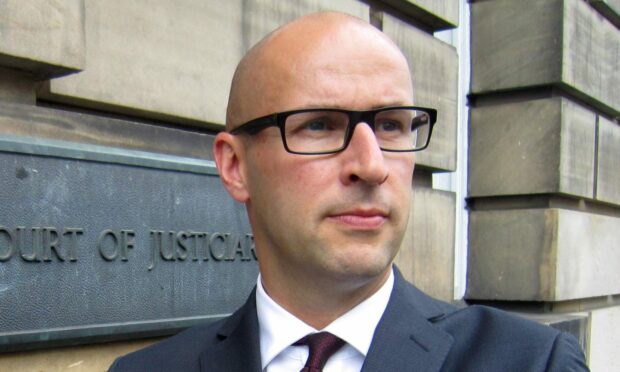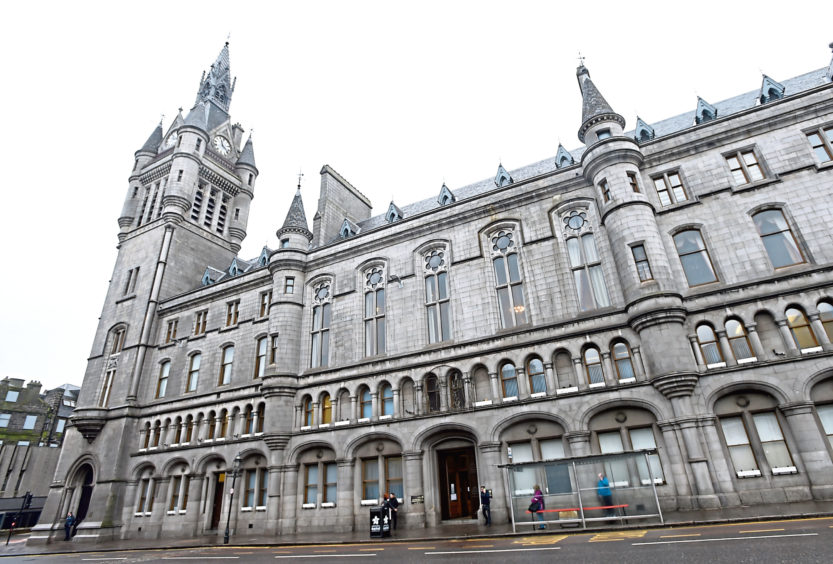Guilty people are “inevitably” escaping conviction for serious offences due to prolonged delays in holding trials in the north-east, a senior lawyer has said.
Ian Woodward-Nutt, the vice president of Aberdeen Bar Association, has warned that the Scottish criminal justice system is at risk of “collapsing” due to significant delays in solemn court trials – with the situation worse in Aberdeen than elsewhere in the country.
He claims that victims of serious crimes – including sexual offences – are now having to wait longer for cases to come to trial at Aberdeen Sheriff Court than in any other court in Scotland.
The lawyer laid the blame firmly at the door of the Scottish Government, who he says are showing “scant regard to the victims of serious crime in the north-east of Scotland”.
“This is not how a criminal justice system should function in a modern society,” Mr Woodward-Nutt said.
“One of the few, unique pillars of Scottish society was our legal system which was previously admired and copied by other nations.
“It is therefore a sad irony that it should be a Scottish nationalist government that should be responsible for failing to act as our criminal justice system collapses.”
He added that what is of the greatest concern to lawyers in the north-east of Scotland is that the problem “is far more pronounced in Aberdeen than elsewhere in the country”.
Delays mean witnesses ‘disengage or disappear’
According to Mr Woodward-Nutt, the time delay from the first hearing – or ‘first diet’ – in other parts of Scotland is only a few months.
However, that delay is currently approaching 18 months in Aberdeen.
The post-pandemic backlog is so bad in the Granite City that it is common to see around six sheriff and jury trials set down to run in any given week.
“In reality, there is little chance that the court can accommodate more than one – or at best two – trials each week,” Mr Woodward-Nutt said.
“Accordingly, due to a lack of court resources, most cases that are set down for trial will have to be adjourned to future trial dates, often a further year or so further down the line.
“Given witnesses by that stage will already have been waiting for two or three years for a case to get to trial, it is commonplace for witnesses simply to disengage or disappear.
“It will be of concern to the public that inevitably guilty accused are escaping conviction because of a lack of resources to allow trials to proceed within a reasonable timescale.”
‘We fully understand the frustration’
A spokesman for the Scottish Courts and Tribunals Service said that it plans to add additional solemn courts in order to help alleviate the north-east backlog.
He said: “We fully understand the frustration which the backlog created by the Covid-19 pandemic has caused both for the defence community and those who they represent.
“Having already achieved a significant reduction in backlogs on summary business and having moved back to in-court juries, the focus going forward is the reduction of the solemn backlog. Starting in April 2023 an additional six solemn courts will be introduced nationally.
“These additional solemn resources are being introduced to ensure all areas of business recover by early 2026. These additional courts include jury sittings at Aberdeen and Peterhead.”
A Scottish Government spokeswoman said: “Whilst it is clear that the pandemic has had a huge impact on the criminal courts, significant progress is being made in tackling the backlog in cases.
“Our justice recovery fund includes funding of £26.5 million to the Scottish Courts and Tribunal Service to increase court and staffing capacity. This has contributed to a fall of 12,000 in the number of scheduled trials between January and the end of October 2022.
“However Justice agencies have been clear that the recovery programme will take several years to address the backlog, and we will continue to support that work.”
A spokeswoman for the Crown Office and Procurator Fiscal Service (COPFS) said it “appreciates the impact that delays in the criminal justice process have upon everyone involved”.
She added: “Delays have a ripple effect and must be dealt with to ensure fair and timely justice for victims, witnesses and those accused of crimes. This is a system-wide problem that requires a system-wide approach.
“COPFS continues to work closely with partners across the criminal justice system to respond to these challenges.”
For all the latest court cases in Aberdeen as well as crime and breaking incidents, join our Facebook group.


